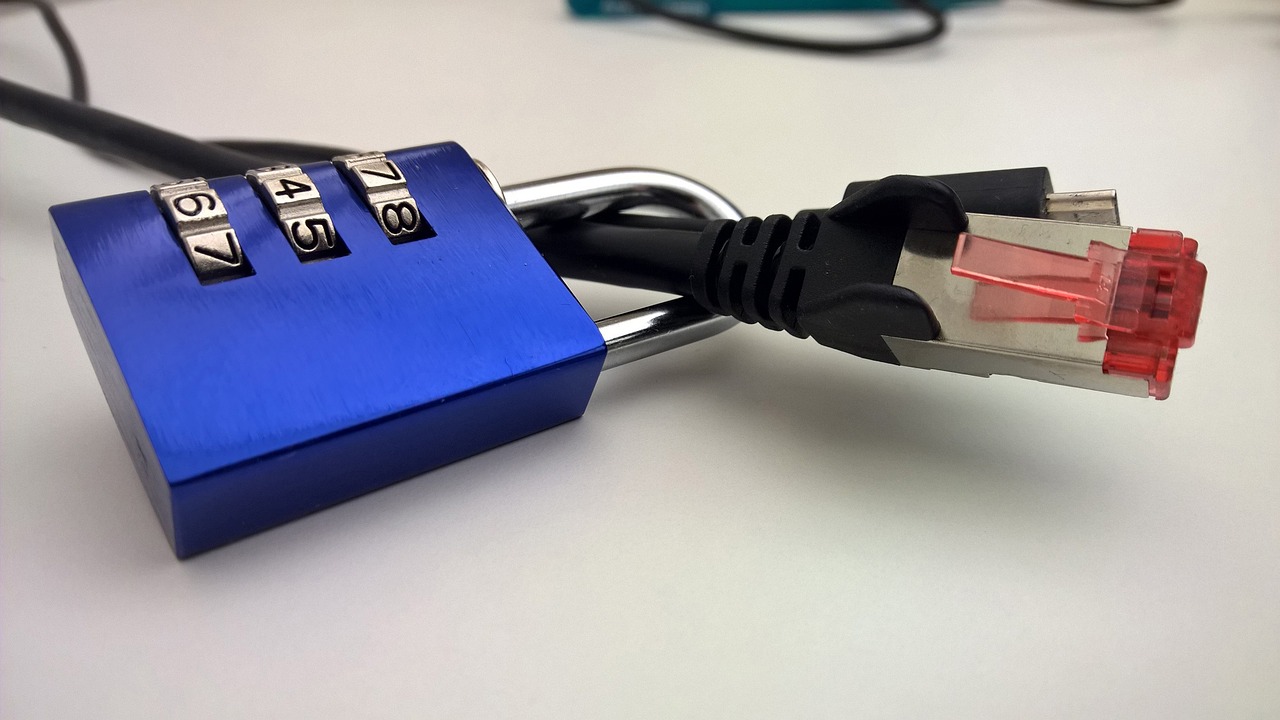How to Address Privacy Concerns in Cryptocurrency Transactions
In the rapidly evolving world of digital currencies, privacy has emerged as a significant concern for users navigating the complex landscape of cryptocurrency transactions. With the increasing adoption of blockchain technology, individuals and businesses alike are becoming more aware of the necessity to protect their personal information. In this article, we will explore the importance of privacy in cryptocurrency, the common risks associated with it, and effective strategies to enhance user privacy while remaining compliant with regulatory frameworks.
To truly grasp the significance of privacy in cryptocurrency, it's essential to understand how it differs from traditional financial systems. In conventional banking, transactions are often shielded by layers of privacy, thanks to regulations and institutional practices. However, the decentralized nature of cryptocurrencies presents unique challenges. For many users, maintaining anonymity is not just a preference but a necessity. Imagine walking through a crowded market, where everyone can see your purchases; that’s how it feels when your financial activities are laid bare on a public ledger. In the digital economy, privacy is akin to security—a fortress protecting your identity and financial health.
As we delve deeper into the world of cryptocurrency, it’s crucial to recognize the various privacy risks that lurk beneath the surface. These risks can manifest in several forms:
- Data Leaks: Sensitive information can be exposed through poor security practices or breaches.
- Surveillance: Increased monitoring by governments and corporations can jeopardize user anonymity.
- Identity Theft: Hackers may exploit vulnerabilities to steal personal data, leading to financial loss and reputational damage.
These risks underscore the need for effective mitigation strategies that not only protect users but also enhance their trust in digital currencies.
One of the most fascinating yet challenging aspects of blockchain technology is its inherent transparency. Every transaction is recorded on a public ledger, which means that while the system is secure, it can also compromise user privacy. Think of it as a glass house; while it offers a clear view of what's inside, it also leaves you exposed to the outside world. This transparency can have significant implications for individuals transacting in cryptocurrencies, making it imperative to understand how to navigate this landscape without sacrificing privacy.
When examining blockchain technology, it's important to differentiate between public and private blockchains. Public blockchains, like Bitcoin and Ethereum, are open for anyone to view and participate in. Conversely, private blockchains restrict access to a select group of users. This fundamental difference affects user privacy significantly. Public blockchains may offer unparalleled transparency, but they also expose users to greater risks. On the other hand, private blockchains can implement robust security measures to protect user data. The choice between the two depends on the balance between transparency and confidentiality that users wish to achieve.
Some cryptocurrencies come equipped with anonymity features designed to protect user identity. Coins like Monero and Zcash utilize advanced cryptographic techniques to obscure transaction details, ensuring that users can transact without fear of prying eyes. However, these features can create a double-edged sword, as they may attract regulatory scrutiny. It's essential for users to be aware of the potential legal challenges associated with these anonymity features while enjoying their benefits.
In the quest for privacy, one cannot overlook the importance of regulatory compliance. Governments worldwide are crafting laws aimed at regulating cryptocurrency transactions, which can significantly impact user privacy. Compliance is not just a legal obligation; it’s also a means to enhance user trust. By adhering to regulations, businesses can assure users that their transactions are secure and legitimate. However, this often leads to a delicate balancing act between maintaining privacy and meeting regulatory demands.
Now that we’ve explored the risks and challenges, let’s discuss some actionable best practices that individuals and businesses can adopt to enhance privacy during cryptocurrency transactions. These strategies can help ensure that sensitive information remains secure and confidential:
Privacy coins like Monero and Zcash play a crucial role in enhancing transaction anonymity. By leveraging advanced cryptographic techniques, these coins allow users to transact without revealing their identities. For those concerned about privacy, using these coins can be a game-changer, providing a layer of security that traditional cryptocurrencies often lack.
Another effective strategy is the use of mixing services, which obscure transaction trails by blending multiple transactions together. This process makes it significantly harder for anyone to trace the origin of funds. However, users should be cautious, as the legality of mixing services can vary by jurisdiction. It’s vital to stay informed about the legal implications while reaping the privacy benefits.
Q: What are privacy coins?
A: Privacy coins are cryptocurrencies designed to provide enhanced anonymity and privacy features, such as Monero and Zcash.
Q: How do mixing services work?
A: Mixing services obscure transaction trails by combining multiple users' transactions, making it difficult to trace the source of funds.
Q: Are there legal risks associated with using privacy features?
A: Yes, the use of privacy features can attract regulatory scrutiny, so it's important to stay informed about the laws in your jurisdiction.

Understanding Privacy in Cryptocurrency
In today's digital age, the concept of privacy is evolving, especially in the realm of cryptocurrency. Unlike traditional finance, where transactions often occur behind closed doors, cryptocurrency operates on a decentralized and transparent platform. This means that every transaction is recorded on a public ledger known as the blockchain. But what does this mean for user privacy? Well, it introduces a fascinating paradox. While cryptocurrencies offer a certain level of anonymity, they also expose users to potential risks that can compromise their personal information.
Maintaining anonymity in cryptocurrency transactions is crucial for several reasons. First and foremost, it protects users from unwanted scrutiny and potential exploitation. Imagine walking through a crowded marketplace, where everyone can see your purchases and financial activities. It’s uncomfortable, right? The same principle applies to cryptocurrency. Users want to transact without the fear of being watched or judged. Moreover, in a world where data breaches are increasingly common, the importance of safeguarding personal information cannot be overstated.
Privacy in cryptocurrency isn't just a luxury; it's a necessity. As more people become aware of the implications of their digital footprints, the demand for privacy-centric solutions grows. Here’s where it gets interesting: while many cryptocurrencies, like Bitcoin, are often perceived as anonymous, they are, in fact, pseudonymous. This means that while your name isn't directly tied to your wallet address, your transaction history is publicly accessible. Anyone with the right tools can trace back transactions to identify users. This is a significant concern for individuals who value their privacy.
Furthermore, the rise of regulatory scrutiny around cryptocurrencies adds another layer of complexity. Governments are increasingly looking to impose regulations that can impact user privacy. They argue that regulations are necessary to prevent fraud and illicit activities, but at what cost? Striking a balance between compliance and privacy is a tightrope walk for many users. It’s akin to trying to enjoy a sunny day at the beach while dodging the waves that threaten to pull you under.
To sum it up, understanding privacy in cryptocurrency is about recognizing the unique challenges posed by its transparent nature. Users must navigate a landscape where their actions can be traced, yet they desire the freedom to transact without fear. This duality makes privacy a hot topic of discussion among enthusiasts and newcomers alike. As we delve deeper into the privacy risks and best practices in the following sections, it’s essential to keep this fundamental understanding in mind. After all, in a world where digital identity is paramount, protecting our privacy is not just a choice; it's a responsibility.

Common Privacy Risks
When diving into the world of cryptocurrency, it's essential to recognize that while digital currencies offer a degree of anonymity, they are not without their privacy risks. Understanding these risks is crucial for anyone looking to navigate the digital economy safely. One of the most pressing concerns is the potential for data leaks. Unlike traditional banking systems, where transactions can be somewhat shielded from public view, cryptocurrency operates on a transparent blockchain. This means that every transaction is recorded on a public ledger, which can be accessed by anyone. While this transparency is beneficial for preventing fraud, it also opens the door to unwanted scrutiny and potential data breaches.
Another significant privacy risk is surveillance. Governments and organizations are increasingly investing in technologies that can analyze blockchain data to track user activity. This could lead to a scenario where your transactions are monitored, undermining the very essence of privacy that cryptocurrencies promise. Imagine your every financial move being scrutinized—it's a thought that can send chills down anyone's spine. Furthermore, the risk of identity theft looms large. If sensitive information is not adequately protected, malicious actors can exploit vulnerabilities to steal identities, leading to financial losses and a tarnished reputation.
To put these risks into perspective, consider the following table that outlines the common privacy risks associated with cryptocurrency transactions:
| Privacy Risk | Description |
|---|---|
| Data Leaks | Exposure of sensitive transaction information due to blockchain transparency. |
| Surveillance | Monitoring of user transactions by governments or organizations. |
| Identity Theft | Unauthorized access to personal information leading to fraud. |
As you can see, the landscape of cryptocurrency is fraught with challenges when it comes to privacy. But don't let this discourage you! By being aware of these risks, you can take proactive steps to protect your digital assets and personal information. Addressing these privacy concerns is not just about safeguarding your identity; it's about fostering a sense of trust in the burgeoning world of digital currencies. After all, in a world where data is as valuable as gold, ensuring your privacy can empower you to engage in cryptocurrency transactions with confidence.
- What are the main privacy risks in cryptocurrency transactions? The main risks include data leaks, surveillance, and identity theft.
- How can I protect my privacy while using cryptocurrencies? You can use privacy coins, mixing services, and ensure you follow best practices for security.
- Are all cryptocurrencies equally private? No, some cryptocurrencies offer more privacy features than others, such as Monero and Zcash.

Blockchain Transparency
When we think about blockchain technology, one of the first things that come to mind is its transparency. Unlike traditional banking systems where transactions are often shrouded in secrecy, blockchain operates as a public ledger, allowing anyone to view the entire history of transactions. This inherent transparency can be a double-edged sword, especially when it comes to user privacy. While it ensures accountability and trust in the system, it also raises significant concerns for individuals who wish to keep their financial activities confidential.
Imagine walking through a crowded marketplace where every purchase you make is loudly announced to everyone around you. That's somewhat akin to how blockchain transactions work; they are visible to anyone who knows where to look. This means that, while you may be using a pseudonym or an address that doesn't directly tie back to your personal identity, savvy observers can still piece together your transaction history and potentially identify you. This is particularly troubling for those who value their privacy, as it exposes them to risks such as surveillance and identity theft.
Moreover, the public nature of blockchain raises questions about the balance between privacy and compliance. Governments and regulatory bodies are increasingly interested in monitoring cryptocurrency transactions to prevent illicit activities such as money laundering and fraud. This has led to a push for more stringent regulations that could further erode user privacy. For instance, the implementation of Know Your Customer (KYC) requirements means that exchanges and other platforms are often required to collect personal information from users. While this is intended to enhance security, it can also make users feel vulnerable, as their sensitive data is stored and potentially exposed.
To illustrate the impact of blockchain transparency on user privacy, consider the following table:
| Aspect | Impact on Privacy |
|---|---|
| Public Ledger | All transactions are visible, making it easy to trace activity. |
| Pseudonymity | Users are identified by addresses, which can be linked to real identities. |
| Regulatory Scrutiny | Increased monitoring can lead to data collection and privacy breaches. |
In response to these challenges, some cryptocurrencies have introduced features designed to enhance privacy. For example, privacy-focused coins such as Monero and Zcash employ advanced cryptographic techniques to obscure transaction details, making it much harder for outsiders to glean information about users. However, these solutions come with their own set of challenges, particularly regarding regulatory compliance.
In conclusion, while blockchain transparency offers numerous benefits, it also poses significant risks to user privacy. As the cryptocurrency landscape continues to evolve, it is crucial for users to stay informed about the implications of these technologies and to adopt strategies that can help safeguard their personal information in an increasingly transparent digital economy.

Public vs. Private Blockchains
When diving into the world of blockchains, one of the first distinctions you'll encounter is between public and private blockchains. Understanding this difference is crucial, especially when considering the implications for user privacy. Public blockchains, like Bitcoin and Ethereum, are open to anyone. This openness allows anyone to view transaction histories and participate in the network, which sounds great for transparency but can be a double-edged sword when it comes to privacy. Imagine walking through a bustling market where everyone can see what you're buying and how much you're spending; that’s what public blockchains can feel like for your financial transactions.
On the flip side, private blockchains are more like exclusive clubs. Access is restricted, and only authorized participants can view the transaction data. This setup provides a layer of privacy that many organizations find appealing, especially those handling sensitive information. For instance, a company might use a private blockchain to manage its supply chain, ensuring that only specific partners can access data about shipments and inventory levels. However, this raises questions about trust and decentralization. If a single entity controls the blockchain, how can we be sure that the data is accurate and not manipulated?
To better illustrate these differences, let’s take a look at a comparison table:
| Feature | Public Blockchain | Private Blockchain |
|---|---|---|
| Access | Open to anyone | Restricted to authorized users |
| Transparency | High transparency; all transactions are visible | Limited transparency; only visible to authorized users |
| Control | Decentralized control | Centralized control by a single entity or consortium |
| Privacy | Low privacy; transactions are publicly recorded | High privacy; transactions can be kept confidential |
In summary, choosing between a public or private blockchain hinges on the specific needs of users and organizations. If privacy is a top priority, private blockchains often provide better safeguards against unwanted scrutiny. However, the trade-off is a potential loss of decentralization and transparency. This balance is crucial for individuals and businesses as they navigate the complex landscape of cryptocurrency transactions and strive to protect their personal information.

Anonymity Features
In the world of cryptocurrency, play a crucial role in safeguarding user identities and enhancing privacy during transactions. Unlike traditional banking systems, where personal information is often required, cryptocurrencies can offer varying levels of anonymity. Some cryptocurrencies, like Bitcoin, are pseudonymous, meaning that while transactions are recorded on a public ledger, they are not directly linked to personal identities. However, this can still lead to privacy concerns as sophisticated analysis can potentially de-anonymize users.
To address these issues, several cryptocurrencies have implemented advanced designed to protect user identities more effectively. Here are some of the most notable features:
- Stealth Addresses: This feature generates a unique address for each transaction, making it difficult to link transactions to a single user.
- Ring Signatures: By mixing a user's transaction with others, ring signatures obscure the actual sender's identity, enhancing privacy.
- Confidential Transactions: This technology hides transaction amounts, ensuring that only the involved parties know the details.
Cryptocurrencies like Monero and Zcash have become popular for their robust anonymity features. Monero, for instance, employs a combination of stealth addresses, ring signatures, and confidential transactions to provide a high level of privacy. On the other hand, Zcash offers the option of "shielded" transactions, which use advanced cryptographic techniques to keep sender and receiver information private. These features can be likened to wearing a mask in a crowded room; while you can still engage in conversations, your identity remains hidden from those around you.
However, while these anonymity features are beneficial for protecting user privacy, they also pose challenges. Regulatory bodies are increasingly scrutinizing such technologies, as they can be exploited for illicit activities. This creates a delicate balance between ensuring user privacy and adhering to compliance regulations. Therefore, users must remain informed about the implications of using these anonymity features, especially in the context of evolving laws and regulations.
In conclusion, anonymity features in cryptocurrencies are essential tools for enhancing privacy and protecting user identities. As the landscape of digital currencies continues to evolve, understanding these features and their implications will be crucial for anyone involved in cryptocurrency transactions.
- What are anonymity features in cryptocurrencies? Anonymity features are mechanisms implemented in cryptocurrencies to protect user identities and transaction details from being publicly visible.
- How do anonymity features differ between cryptocurrencies? Different cryptocurrencies utilize various techniques, such as stealth addresses and ring signatures, to provide varying levels of privacy.
- Are anonymity features legal? While many anonymity features are legal, their use can attract scrutiny from regulatory bodies, especially if they are perceived to facilitate illicit activities.
- Can I remain completely anonymous while using cryptocurrencies? While some cryptocurrencies offer strong anonymity features, achieving complete anonymity can be challenging due to potential vulnerabilities and regulatory scrutiny.

Regulatory Compliance
In the ever-evolving landscape of cryptocurrency, has become a critical aspect that users and businesses must navigate. As governments around the world strive to create frameworks that can effectively manage digital currencies, the balance between maintaining user privacy and adhering to these regulations is a delicate one. Imagine trying to walk a tightrope—on one side, you have the need for anonymity and privacy, while on the other, there’s the demand for transparency and adherence to laws. This balancing act is essential for fostering trust in the cryptocurrency ecosystem.
Regulations can vary significantly from one jurisdiction to another, creating a complex web of compliance requirements. For instance, some countries have embraced cryptocurrencies, implementing favorable regulations that promote innovation, while others have imposed strict restrictions or outright bans. This inconsistency can lead to confusion for users who may be unsure of their legal standing when engaging in cryptocurrency transactions. Therefore, it's crucial for individuals and businesses alike to stay informed about the specific regulations that apply to their activities.
One of the primary regulatory concerns surrounding cryptocurrencies is anti-money laundering (AML) and know your customer (KYC) regulations. These laws are designed to prevent illicit activities by requiring businesses to verify the identities of their customers. While these measures can enhance security and trust, they can also compromise user privacy. For example, when a user is required to provide personal information to a cryptocurrency exchange, they may feel uneasy about their data being stored and potentially misused. This is where the challenge lies—how do we comply with regulations while still protecting user privacy?
To address these concerns, many cryptocurrency platforms are adopting robust compliance measures that do not overly infringe on user privacy. Here are some strategies that can be employed:
- Data Minimization: Collect only the essential information required for compliance, reducing the risk of data breaches.
- Encryption: Utilize encryption techniques to safeguard sensitive data, ensuring that even if data is intercepted, it remains unreadable.
- Decentralized Identity Solutions: Explore technologies that allow users to control their own identities, providing proof of identity without revealing unnecessary personal information.
It's essential for users to remain proactive in understanding the regulations that affect their transactions. Engaging with legal experts who specialize in cryptocurrency can provide valuable insights and help ensure compliance without sacrificing privacy. Additionally, being part of community discussions can shed light on best practices and emerging trends in the regulatory landscape.
Ultimately, achieving regulatory compliance in the cryptocurrency space is not just about following the law; it’s also about building a trustworthy environment for users. As the industry matures, the integration of privacy-enhancing technologies alongside compliance measures will be key to fostering a secure and user-friendly cryptocurrency ecosystem.
Q1: What are the main regulations affecting cryptocurrency transactions?
A1: The main regulations typically include anti-money laundering (AML) laws, know your customer (KYC) requirements, and tax compliance regulations. These can vary significantly based on jurisdiction.
Q2: How can I protect my privacy while ensuring compliance?
A2: You can protect your privacy by using data minimization practices, encryption, and decentralized identity solutions while ensuring that you stay informed about the specific regulations that apply to your transactions.
Q3: What role do privacy coins play in regulatory compliance?
A3: Privacy coins can enhance transaction anonymity; however, their use can raise regulatory concerns. It’s important to understand the legal implications of using such coins in your jurisdiction.

Best Practices for Enhancing Privacy
When it comes to cryptocurrency transactions, privacy isn't just a luxury—it's a necessity. Imagine walking through a crowded market, where every purchase you make is loudly announced for everyone to hear. That's how exposed you can feel without proper privacy measures in the digital currency realm. To safeguard your financial information, it’s crucial to adopt best practices that enhance your privacy while navigating this exciting yet risky landscape.
First and foremost, using privacy coins can be a game-changer for individuals who prioritize anonymity. Coins like Monero and Zcash are designed specifically to obscure transaction details, making it nearly impossible for outsiders to trace your financial activities. By utilizing these currencies, you can enjoy a level of confidentiality that traditional cryptocurrencies like Bitcoin simply can't provide. However, it’s essential to understand the legal implications of using such coins in your jurisdiction, as regulations can vary significantly.
Another effective strategy is to employ mixing services. These services work by pooling your cryptocurrency with that of other users, effectively breaking the connection between your wallet address and the coins you spend. Think of it as blending your juice with a variety of fruits; the original flavors become indistinguishable. While this can significantly enhance your privacy, it’s crucial to choose reputable mixing services to avoid falling victim to scams or legal issues. Always do your homework before selecting a service, and consider the potential risks involved.
Additionally, utilizing a VPN (Virtual Private Network) when making transactions can add an extra layer of security. A VPN masks your IP address, making it more challenging for anyone to track your online activities. This is particularly important when accessing cryptocurrency exchanges or wallets, as it helps keep your location and identity under wraps. Remember, in the digital world, your IP address can reveal a lot about you, so it's wise to keep it hidden.
It’s also beneficial to maintain multiple wallet addresses. Using different addresses for various transactions can help compartmentalize your financial activities. This way, if one address is compromised, the others remain secure. Just like having separate bank accounts for different purposes, this practice can keep your financial life organized and private. Regularly rotating your addresses can further enhance your anonymity.
Lastly, always be cautious about the information you share online. Social media can be a double-edged sword; while it connects you with others, it can also expose your financial habits and preferences. Be mindful of what you post, and avoid discussing your cryptocurrency transactions publicly. Remember, in a world where information is power, keeping your cards close to your chest can be your best strategy.
In summary, enhancing your privacy in cryptocurrency transactions is all about being proactive and informed. By adopting these best practices—using privacy coins, employing mixing services, utilizing a VPN, maintaining multiple wallet addresses, and being cautious about your online presence—you can significantly reduce your risk of exposure and enjoy a more secure digital currency experience.
- What are privacy coins? Privacy coins are cryptocurrencies designed to protect user identities and transaction details, such as Monero and Zcash.
- How do mixing services work? Mixing services obscure transaction trails by pooling your cryptocurrency with others, making it difficult to trace back to your original wallet.
- Is it legal to use privacy coins? The legality of privacy coins varies by jurisdiction, so it's essential to research the regulations in your area before using them.
- Why should I use a VPN for cryptocurrency transactions? A VPN masks your IP address, adding an extra layer of security and making it harder for anyone to track your online activities.

Using Privacy Coins
When it comes to maintaining anonymity in the world of cryptocurrency, privacy coins have emerged as a beacon of hope for users seeking to protect their financial information. Unlike traditional cryptocurrencies like Bitcoin, which are often criticized for their transparent nature, privacy coins are designed specifically to enhance user confidentiality. They employ advanced cryptographic techniques to obscure transaction details, ensuring that the identities of senders and receivers remain hidden. This is particularly important in a digital economy where data breaches and surveillance are rampant, leaving many individuals feeling vulnerable.
So, what exactly are privacy coins? They are cryptocurrencies that prioritize user anonymity and privacy. Some of the most notable ones include Monero, Zcash, and Dash. Each of these coins utilizes different methods to achieve privacy, but they all share a common goal: to provide a safe haven for users who wish to keep their financial activities under wraps. For instance, Monero uses a technology called Ring Signatures, which mixes the digital signatures of multiple users to obscure the origin of a transaction. This makes it nearly impossible for anyone to trace back the transaction to a single user.
The benefits of using privacy coins are manifold. Firstly, they allow users to conduct transactions without the fear of being tracked or monitored. This is especially appealing to individuals who value their privacy and wish to keep their financial activities confidential. Additionally, privacy coins can help protect users from potential identity theft, as the less information that is available publicly, the harder it is for malicious actors to exploit personal data. However, it’s essential to note that while privacy coins provide enhanced security, they also come with their own set of challenges, particularly regarding regulatory scrutiny.
As governments worldwide continue to grapple with the implications of cryptocurrencies, privacy coins often find themselves in the crosshairs. Regulatory bodies are increasingly concerned about the potential for these coins to facilitate illicit activities, such as money laundering and tax evasion. As a result, users of privacy coins must remain vigilant and informed about the legal landscape surrounding these digital assets. It’s crucial to strike a balance between privacy and compliance, ensuring that while you protect your identity, you also adhere to the regulations in your jurisdiction.
In conclusion, privacy coins represent a significant advancement in the quest for financial anonymity in the cryptocurrency space. They empower users to take control of their financial privacy, but with great power comes great responsibility. As you consider utilizing privacy coins, weigh the benefits against the potential risks and stay informed about the evolving regulations that govern their use. The world of cryptocurrency is ever-changing, and being proactive about your privacy can make all the difference in safeguarding your assets.
- What are privacy coins? Privacy coins are cryptocurrencies designed to enhance user anonymity and confidentiality during transactions.
- How do privacy coins work? They use advanced cryptographic techniques to obscure transaction details, making it difficult to trace the identities of users.
- Are privacy coins legal? The legality of privacy coins varies by jurisdiction, and users should stay informed about local regulations.
- Can privacy coins prevent identity theft? Yes, by minimizing the amount of publicly available information, privacy coins can help protect users from identity theft.

Employing Mixing Services
When it comes to enhancing privacy in cryptocurrency transactions, mixing services have emerged as a powerful tool. But what exactly are these services, and how do they work? Mixing services, also known as tumblers, essentially take your cryptocurrency and mix it with others in a pool, making it incredibly difficult to trace the original source of the funds. Imagine pouring different colors of paint into a bucket; once mixed, it’s nearly impossible to identify which color came from which source. This is the essence of how mixing services operate, providing users with an extra layer of anonymity.
However, while mixing services can significantly improve your privacy, they come with their own set of considerations. For instance, not all mixing services are created equal. Some may charge high fees, while others might not have robust security measures in place, leaving your funds vulnerable. Therefore, it’s crucial to do your homework before selecting a mixing service. Here are a few key factors to consider:
- Reputation: Always choose a service with a solid reputation. Check reviews and community feedback to ensure that others have had positive experiences.
- Fees: Be aware of the fees associated with using the service. Some services may take a significant portion of your funds as a fee, which can add up quickly.
- Security: Ensure that the service employs strong security protocols to protect your funds and personal information.
Moreover, while mixing services can enhance privacy, they are not without potential legal implications. Regulatory bodies are increasingly scrutinizing these services, and using them could raise red flags, especially if you’re not transparent about your transactions. It’s essential to stay informed about the legal landscape surrounding mixing services in your jurisdiction. Being proactive can help you navigate any potential issues that might arise.
In conclusion, employing mixing services can be an effective strategy for individuals looking to bolster their privacy in cryptocurrency transactions. However, it’s important to approach these services with caution, ensuring that you choose reputable options and remain aware of the associated risks. By doing so, you can enjoy a higher level of anonymity while engaging in the digital economy.
- What are mixing services? Mixing services are tools that combine your cryptocurrency with others to obscure the original source of the funds.
- Are mixing services legal? The legality of mixing services varies by jurisdiction. It's crucial to understand the laws in your area before using them.
- Do mixing services guarantee complete anonymity? While mixing services enhance privacy, they do not guarantee complete anonymity, especially if the service is compromised.
Frequently Asked Questions
- What are the main privacy concerns in cryptocurrency transactions?
Privacy concerns in cryptocurrency transactions primarily revolve around the potential for data leaks, surveillance, and identity theft. Unlike traditional finance, where privacy can be somewhat maintained, blockchain technology often exposes transaction details to the public, making it crucial for users to understand the risks involved.
- How does blockchain transparency affect user privacy?
Blockchain transparency means that all transactions are recorded on a public ledger, which can compromise user privacy. While this transparency is beneficial for security and accountability, it also means that anyone can trace transactions back to their origin, potentially revealing sensitive information about users.
- What are privacy coins, and how do they enhance anonymity?
Privacy coins, like Monero and Zcash, are cryptocurrencies specifically designed to enhance user anonymity. They employ advanced cryptographic techniques to obscure transaction details, ensuring that the sender, receiver, and transaction amount remain private, which is particularly appealing for users concerned about surveillance.
- Can mixing services help improve privacy in transactions?
Yes, mixing services can significantly improve privacy by obscuring transaction trails. By pooling funds from multiple users and redistributing them, these services make it difficult to trace the origin of funds. However, it's essential to be aware of the potential legal implications of using such services.
- How can individuals and businesses ensure compliance while maintaining privacy?
To ensure compliance while maintaining privacy, individuals and businesses should stay informed about relevant regulations and implement best practices such as using privacy coins, employing mixing services, and adopting secure wallets. Balancing privacy with compliance is crucial in navigating the complex landscape of cryptocurrency transactions.
- What are the differences between public and private blockchains regarding privacy?
Public blockchains are open and accessible to anyone, which enhances transparency but can compromise privacy. In contrast, private blockchains restrict access to authorized users, allowing for greater control over who can see transaction details, thereby enhancing user privacy while still maintaining some level of oversight.


















